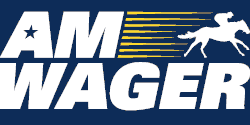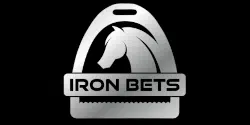South Dakota Gambling
South Dakota is a gambling-friendly state. It was the third state to legalize casinos after Nevada and New Jersey. These casinos are in the Black Hills town of Deadwood and a dozen reservations. There is also a state lottery, video lottery and horse racing.
While most forms of in-person gambling are legal in South Dakota, the only form of explicitly legal online gambling is horse racing betting. South Dakota voters approved sports betting during a statewide referendum in late 2020. The legislature followed up with accompanying legislation in early 2021 to clear the way for casinos in Deadwood to operate retail sportsbooks, potentially launching by late 2021.
Legal gambling options in SD include:
- Casinos: Live, located in Deadwood and on reservations
- Poker: Live, only in licensed casinos
- Table Games: Live, only in licensed casinos
- Slots and Video Poker: Live, at licensed casinos and video lottery retailers
- Sports Betting: Available in-person at Deadwood casinos.
- Horse Racing: Live and mobile
- Lottery Tickets and Drawings: Only sold at retailers
- Bingo: Casinos and charitable
- Daily Fantasy Sports: Not regulated, but not illegal; major operators active in SD
Legal South Dakota Gambling Sites






21+ and present in SD. T&Cs Apply. Gambling Problem? Call 1-800-522-4700.
South Dakota Online Gambling
The only form of online gaming in South Dakota that is explicitly and unquestionably legal is horse racing betting. With only one off-track betting facility in the entire state, mobile betting is the only option for most residents and visitors.
Fantasy sports are not covered by any South Dakota law. This puts the activity in a legal gray area. No enforcement action has ever been taken against a fantasy sports operator or player, and the state Attorney General issued a memo in 2015 stating no action would be taken against fantasy site operators.
To summarize:
- Online racing betting is legal and regulated in South Dakota
- Fantasy sports are neither regulated nor prohibited in SD; they are simply tolerated
South Dakota Casinos
South Dakota legalized casinos in Deadwood through a constitutional amendment approved on November 8, 1988. The first casinos opened the following November to make Deadwood the first jurisdiction in the United States outside Nevada and Atlantic City to legalize casinos.
The amendment was supported by a strong majority of voters who recognized Deadwood needed revitalization as a dying mining town.
At the time, the historic Black Hills town was on its way to becoming a ghost town and gaming was suggested as a mean to bring it back to life. Deadwood itself also seemed like a fitting place to legalize gambling.
In the late 1800s, the mining town was a hot spot for live poker. This was the “Wild Bill” Hickock era, and Deadwood is where Hickock was shot and killed at a poker table inside Old Style Saloon No. 10. He was holding what is now referred to as the Dead Man’s Hand these days: two black aces, two black eights and a fifth card that varies depending on who you ask.
This occurred at the original location of Old Style Saloon No. 10 and the chair in which Wild Bill was sitting when he was shot is still on display at Saloon No. 10’s new location across Main Street. Wild Bill himself is buried at Mt. Moriah Cemetery overlooking downtown Deadwood.
These days, the Dead Man’s hand isn’t such an unlucky occurrence in Deadwood. Players who make the Dead Man’s Hand while playing poker at Saloon No. 10 these days win 25% of the bad beat jackpot.
There are 20 casinos in Deadwood today. There are 12 tribal casinos throughout the state. Hundreds of South Dakota taverns and gas stations operate video lottery casinos. All are on the small side.
Most South Dakota casinos have fewer than 100 machines and many do not have any table games. The largest have a few hundred machines and up to 15 table games.
Deadwood gambling started out with a $5 maximum bet in 1989. In 2000, the limits went up to $100. In 2012, voters approved a $1,000 bet limit. This required casinos to install modern surveillance if they wanted to accept bets at the new limits, something most properties opted out of. In 2015, craps and roulette were added to mix of games after another successful state gaming referendum.
Deadwood Casinos
- Buffalo Bodega
- Cadillac Jack’s Gaming Resort
- Deadwood Gulch Casino & Resort
- Deadwood Mountain Grand
- Main Street Deadwood Gulch Saloon
- Super 8 by Wyndham Deadwood
- Silverado Franklin Hotel & Gaming Complex
- First Gold Gaming Resort
- Gold Country Inn & Gambling Hall
- Gold Dust Casino & Hotel
- Rocksino Hard Rock Deawood
- Historic Bullock Hotel Casino
- Iron Horse Inn
- Mineral Palace Hotel & Gaming
- Mustang Sally’s
- Oyster Bay Bar & Casino
- Saloon # 10
- Silverado-Franklin Hotel & Gaming
- The Lodge at Deadwood
- Tin Lizzie Gaming Resort
South Dakota Tribal Casinos
- Dakota Connection Casino
- Dakota Sioux Casino & Hotel
- East Wind Casino (closed?)
- Fort Randall Casino & Hotel
- Golden Buffalo Casino
- Grand River Casino & Resort
- Lode Star Casino
- Prairie Wind Casino
- Turtle Creek Crossing Casino (closed?)
- Yankton Sioux Travel Plaza
- Quality Inn Rosebud Casino
South Dakota Sports Betting
South Dakota residents approved sports betting via referendum during the November 2020 elections via Amendment B. Voters approved the measure by a comfortable margin, but the state legislature must now pass legislation to implement the will of the voters.
Lawmakers introduced SB 44 in January 2021 and passed it two months later to legalize sports betting in Deadwood. The law discusses mobile betting in a roundabout way (“advance deposit wagering”), but it appears to limit users to placing wagers from inside licensed Deadwood casinos.
According to local media, gaming officials hope to see the first South Dakota sportsbooks open to the public before the end of 2021.
In 2019, South Dakota lawmakers introduced SJR 2. The bill would have initiated a constitutional amendment to be approved by voters in November 2020. The bill passed the state senate but stalled in the House State Affairs Committee, where it was defeated 7-3.
The bill was pushed by Deadwood lobbyists. If approved by voters, it would have permitted sports betting at licensed Deadwood and tribal casinos. Mobile betting would not have been allowed under the proposal.
The logistics of rolling out a system was problematic, which was one reason it did not survive the 2019 South Dakota legislative session. Governor Kristi Noem was among the politicians opposed to expanding gambling in the state.
South Dakota Poker
Live poker is legal in South Dakota at Deadwood and tribal casinos. Online poker is not approved in the state.
There are 16 approved poker game variants in South Dakota. Most are draw games that are no longer spread in the state. Others include Texas Hold’em, Omaha and Seven Card stud variants. Texas Hold’em is by far the most common game at South Dakota poker rooms. Omaha is spread at two Deadwood casinos and one tribal casino. Seven Card Stud is offered at one Deadwood casino.
A game must be on the list of approved games to be dealt at any licensed South Dakota casino. It is simple to gain approval for new games; it only needs a casino to sponsor it to the South Dakota Commission on Gaming.
South Dakota Poker Rooms
There are four poker rooms in Deadwood and another three on reservations.
Deadwood Poker Rooms
- Cadillac Jack’s Poker Room: Six tables, open daily at noon. Texas Holdem cash games and tournaments featuring the highest limits in Deadwood.
- Saloon # 10 Poker Room: Texas Holdem, Omaha Hi/Lo, Seven Card Stud, Seven Card Stud 8/b, Crazy Pineapple, Razz and frequent tournaments.
- Silverado-Franklin Poker Room: Texas Holdem, Omaha, and a lively tournament scene. Home to SD State Poker Championship.
Tribal Poker Rooms
- Dakota Sioux Poker Room: Texas Holdem, Omaha Hi/Lo, Crazy Pineapple, and Straight Pineapple – weekly tournaments but only open Fri-Sun.
- Grand River Casino Poker Room: Four tables, Texas Holdem, and mixed cash games.
- Fort Randall Poker Room: Four tables, Texas Holdem, mixed games and two weekly tournaments.
South Dakota Daily Fantasy Sports
There are no laws on the books in South Dakota that directly address the legality of fantasy sports. On December 7, 2015, South Dakota Attorney General Marty Jackley released a statement with his opinion on the activity’s legality.
Jackley opined that there was not enough evidence that fantasy sports contests are illegal in the state and declined to pursue any criminal actions against operators. Jackley left the door open for a civil complaint against daily fantasy sports companies. However, nothing ever came from it.
Most daily fantasy sports companies operate in South Dakota. These include FanDuel, DraftKings, FantasyDraft and Yahoo.
South Dakota Horse Racing Betting
Betting at live horse races in South Dakota is legal. Mobile betting is also licensed in the state.
There are two horse racing tracks in South Dakota. The track in Fort Pierre ceased operations after the 2018 racing season due to an inability to fund a bond required by the state to protect vendors. Northeast Area Horse Racing in Aberdeen announced it would not hold a race in 2019 but did not cite a reason. This was the first time in decades that South Dakota did not have a live horse race.
Off-track betting parlors are suffering a similar fate in South Dakota. Three of the state’s four off-track betting licensees have closed since 2016. Facilities closed in Aberdeen, Rapid City and Sioux Falls during that time. The lone off-track betting parlor is Triple Crown Casino and Sports Bar in North Sioux City. It is located about an hour south of Sioux Falls, on the Iowa border.
There are three authorized mobile operators in South Dakota:
- TwinSpires.com
- TVG.com
South Dakota Esports Betting
Esports gaming is generally legal. It likely falls outside of the game of chance spectrum. However, no specific laws address esports.
South Dakota Bingo
South Dakota permits charities to spread bingo. Nonprofits that offer bingo include churches, volunteer fire departments and VFW posts. Online bingo is not legal. Raffles fall under the same law as bingo.
South Dakota Lottery
The South Dakota Legislature created a state lottery in 1987. The first ticket was sold on September 30, 1987. The South Dakota Lottery sells scratch-off tickets and lotto drawings. These include interstate pools. South Dakota lotto games include:
- Powerball
- Mega Millions
- Dakota Cash
- Lucky For Life
- Lotto America
South Dakota Video Lottery
In 1988, the state legislature debated a bill that would have legalized video lottery. This is a statewide slot and video poker network that allows establishments with an alcohol by-the-drink license to offer the games. It failed to pass that year. However, it gained traction and became law in 1989.
The South Dakota Video Lottery was petitioned to a statewide referendum in 1992. Voters overwhelmingly affirmed it. Opponents took the matter to court. The state supreme court ruled the games unconstitutional in 1993. A special legislative session was called to create a constitutional amendment to keep the video lottery alive. It passed the legislature and voters approved it, keeping the games live. South Dakota voters once again voted to keep video lottery in 2000 and 2006.
The South Dakota Video Lottery taxes the profit of machines at a rate of 50 percent. The games have generated over $2 billion in taxes since going live in 1989. It is the second highest tax generator for the state behind sales taxes.
South Dakota Skill Games
South Dakota defines gambling as placing money on an outcome of a game of chance. Wagering money on games of skill is legal within South Dakota. Examples of this include chess, cribbage, board games and skill competitions. Games of chance are legal to play if it is done within a home and not commercially. Businesses with alcohol permits risk losing licensing if caught operating games of chance for profit.
South Dakota state law does not permit wagering money on the internet unless the website is licensed as is the case with horse racing sites such as TwinSpires and BetAmerica.
Most online skill games sites such as WorldWinner and WPT Online do not accept players from South Dakota due to the gray area under the law that also excludes many sweepstakes.
South Dakota Gambling Laws
Gambling in South Dakota was created through several constitutional amendments. We go over these in this section. There are three major forms of legalized gambling in South Dakota. The links below cover the methods and the agencies that oversee the gaming operations.
- South Dakota Lottery
- South Dakota Video Lottery
- South Dakota Commission on Gaming
- South Dakota Gambling Regulations (PDF)
- State Code on Gambling
- SD Sports Betting Law (PDF)
South Dakota Lottery Law
Voters approved an amendment to the South Dakota Constitution to create a state lottery in 1987. This was the first form of organized gambling legalized in the state. Chapter 42-7A created the agencies and codified the functions of the state lottery. In September of that year, the first tickets were sold.
The state legislature, without a constitutional amendment, created the first video lottery in the United States in 1989. Lawmakers wanted to generate revenue from the gray machines that took over bars in the state. Article 3 of the state constitution forbids games of chance. The original machines offered numerous games of chance, such as bingo and keno. This would come back to haunt state lawmakers.
In 1992, residents referred the video lottery to a statewide referendum. The video lottery won by a nearly 2:1 margin. It did not take long for opponents to take another angle. It all ended in the South Dakota Supreme Court, which ruled that the state’s video lottery was unconstitutional in 1993.
Undeterred, lawmakers called a special session within weeks. It passed the legislature and voters approved a constitutional amendment in November of that year. The games went live again within weeks. Two future attempts failed to repeal the video lottery in 2000 and 2006.
Deadwood Gaming Passes by Statewide Referendum
Deadwood was a mining town that was established in the 19th century. Most of the gold around Deadwood was mined, leaving the town in a depression. The area’s last mine was in Lead and area residents knew its days were numbered.
Local activists started a grassroots movement to revitalize the Deadwood. The state legislature allowed it to go to a statewide constitutional referendum in November 1988. It passed by a 64 to 36 margin. This also allowed tribes in South Dakota to open casinos.
The original bet limit was $5. This kept most of the action on the slots. Poker tables permitted unlimited straddles at $5, turning these tables into bingo games more than poker ones.
As gaming grew in the region, Deadwood needed to raise limits to remain competitive. In November 2000, South Dakota voters amended the state constitution to raise the bet limits from $5 to $100 by a 52 to 48 margin. This helped the state’s casinos draw more players with more attractive table games and poker tables.
As gaming continued to grow in the region, Deadwood casino operators went back to the legislature to get new table games of luck, like craps and roulette, approved in 2014. The Legislature sent the proposal to the ballot. It passed by a 57-43 margin. SB 57 passed the legislature in 2015. This created the framework for the gaming commission to regulate these games. Craps, roulette and live keno launched on July 1, 2015 in Deadwood and several tribal casinos in South Dakota.
South Dakota Online Gambling Laws
South Dakota only permits one form of internet gambling. That is off-track betting on horse and greyhound races through computers and mobile devices.
All other forms of online gambling are illegal, according to South Dakota Chapter 22-25A. Establishing an internet gambling business is a felony and each individual wager accepted is considered a separate violation.
South Dakota Poker Laws
As noted above, online poker is expressly illegal in South Dakota. However, live poker rooms are legal if licensed by the state or spread within a tribal casino.
Live poker games must be approved by the South Dakota Commission on Gaming. Under gaming rule 20:18:16:02, the permitted games are:
- Texas Hold’em
- Five-card draw lowball
- Five-card draw high
- Five-card draw high/low split
- Five-card stud high
- Razz
- Seven-card stud high
- Seven-card stud high/low
- Omaha high
- Omaha high/low
- Pineapple
- Pineapple high/low
- Super eight
- Super eight high/low
- Crazy pineapple
- Crazy pineapple high/low
State gaming law caps rake at 10 percent. This includes tournament fees.
Sports Betting Laws in South Dakota
South Dakota legalized sports betting via a two-part process between 2020 and 2021. First, voters approved sports betting via statewide referendum during the November 2020 election. Second, the legislature approved additional legislation in early 2021 to legalize retail sportsbooks at casinos.
South Dakota Daily Fantasy Sports Law
There are no laws in South Dakota pertaining to daily fantasy sports. South Dakota Attorney General Marty Jackley released an opinion in 2015 that stated the games do not clearly violate state law. He noted that the lack of guidance from the state legislature prevented him from pursuing legal action against sites accepting daily fantasy sports players from South Dakota residents.
South Dakota Horse Racing Laws
Chapter 20:14:17 of the South Dakota Commission on Gaming created regulations for the state’s horse racing industry. It allows for live horse racing, as well as off-track betting for horses and greyhounds.
In addition to live and off-track race betting, South Dakota state law permits mobile pari-mutuel betting. Companies must be licensed in the state to accept wagers.
While live horse racing is legal in South Dakota, there are no active tracks. The last horse race in South Dakota occurred in 2018. A state bonding issue closed the only two tracks.
South Dakota Bingo Law
South Dakota law permits bingo for registered charities. These nonprofits tend to include rural community centers, youth sports, churches and volunteer fire departments. Raffles fall under the same law.
Charities that offer bingo must pay a five percent tax to the state.
South Dakota Lottery Laws
There are three types of lotteries in South Dakota. Voters created a traditional lottery through a 1986 statewide constitutional referendum. The South Dakota Legislature created the framework in 1987. The first lottery tickets were sold in South Dakota on September 30, 1987.
The third lottery product in South Dakota legalized video poker machines. These devices are a part of the South Dakota Video Lottery. It was approved in 1989.
The South Dakota Video Lottery survived four ballot challenges and a state supreme court ruling against it. The South Dakota Legislature and voters revived the video lottery in 1994.
The first South Dakota Video Lottery machines were terminals that offered video poker, blackjack, keno and bingo. In 2011, to combat the revenue losses brought on by a statewide smoking ban, the state video lottery added line games. This permitted video lottery retailers to add slot machines like the ones spread in Deadwood.
The maximum bet for the South Dakota Video Lottery is $2. Machines do not accept bills larger than $20. The maximum win is 500 times the bet and no larger than $1,000. Video lottery hours run from 7am to 2am. This is the same hours that bars may be open. Video lottery retailers must have an alcohol-by-the-drink license. The maximum permitted payback is 92 percent.



